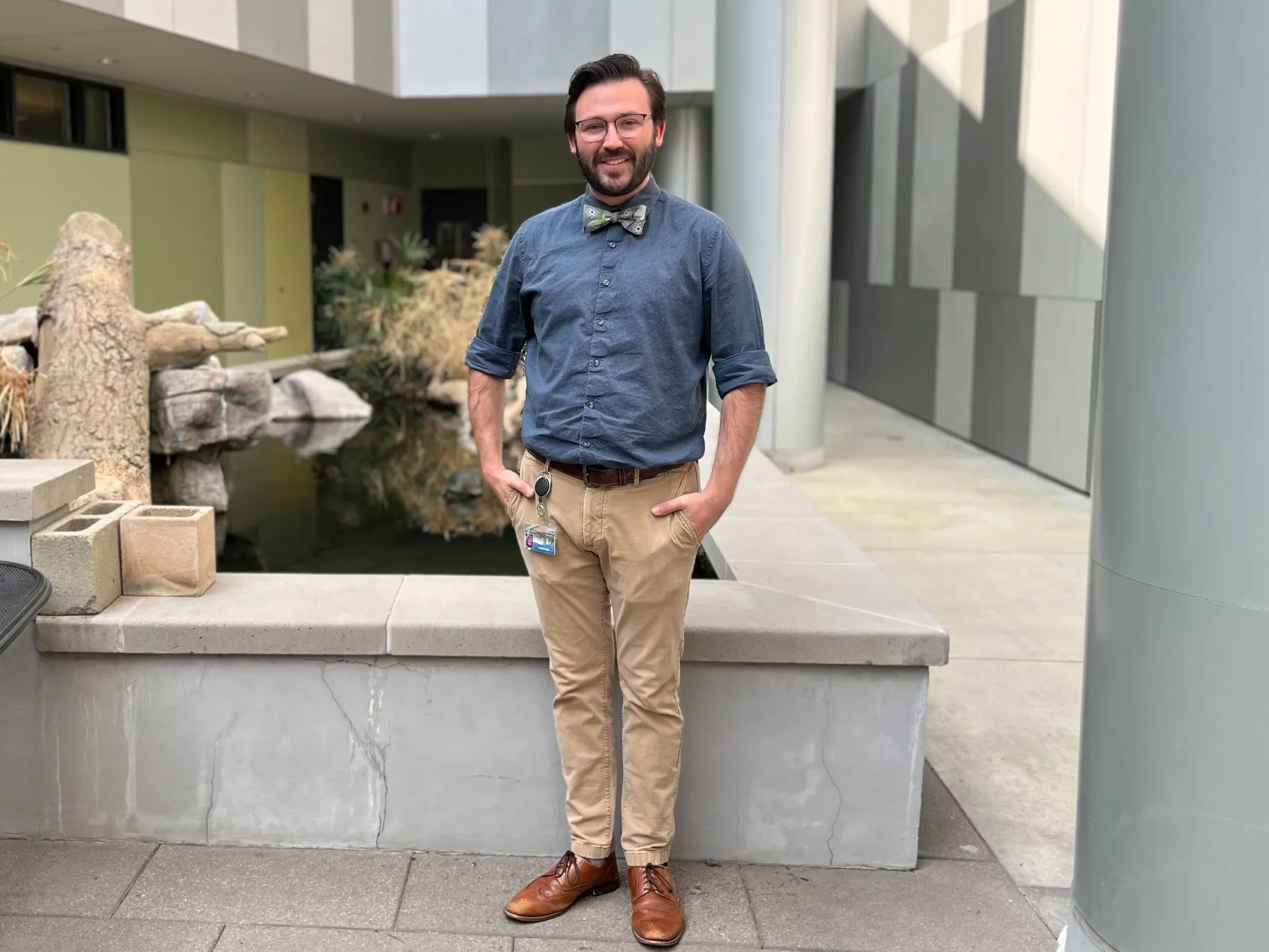- Home
- >
- APU Articles
- >
- News Article
Faculty Feature: Elijah Roth, PhD, Lives Out His Calling Teaching Faith Through Chemistry
October 04, 2024 | Category Humanities and Sciences | Written By Jacqueline Guerrero

While secular higher education institutions provide great science education, Azusa Pacific University's faith integration aspect into all fields of study adds a deeper level of meaning to science for students. Elijah Roth, PhD, an assistant professor in the Department of Biology and Chemistry, believes that authentic faith integration can help students to flourish in the classroom and beyond.
Roth knew that God was calling him to teach in some capacity from a young age. “In sixth grade, I taught first graders how to play chess, and I immediately fell in love with teaching,” he said. “In high school, I had to decide whether I wanted to teach from the pulpit or in the classroom.” Still unsure which career path he wanted to pursue long term, Roth majored in chemistry and minored in religious studies with an emphasis in Hebrew at Fresno Pacific University. After an influential conversation with his Hebrew professor, Roth decided to follow through with his childhood dream of becoming a teacher in the classroom.
However, Roth found a way to combine both his passions at APU. “I came here to do both chemistry and ministry,” he said. “As a professor, I can let faith flow into all aspects of my job. Just the other day I told my students about how my favorite Bible verse related to our discussion on quantum mechanics.” Roth has a genuine passion for showing his students the beauty of the world through the lens of creation.
We can see the fingerprints of God on even the smallest building blocks of the universe,” he said. “The periodic table is art. There are aspects of the Trinity in certain molecules. The nature of our creator is reflected in what we study in chemistry, and I think that’s amazing!
Besides teaching the scientific aspects of chemistry, Roth believes that facilitating conversations around discipleship in the classroom is important because it allows his students to see how they can affect the world around them while becoming better neighbors and citizens. “Discussions around how we interact with humanity can range from the ethics of nuclear technology to how Christians practicing chemistry can balance mental health and work.”
Such conversations tie into Roth’s specialized research in chemistry education on student motivation and activities. The summer before his senior year of college, Roth attended a conference where a professor gave a talk on chemistry education and motivational research. “I thought it was fascinating,” Roth said. “I found out that I could pursue the subject and get my PhD at Purdue University, so in graduate school I started projects that related to the topic of motivation and found that I was most engaged with those concepts.”
Roth’s current research project is to assess the influence of the learning assistant program on students’ learning and identities. The project stems from a motivational construct in self determination theory and models of STEM identity.
Previously conducted research has shown Roth the positive impact of teaching through storytelling. “The artist Claude Monet did beautiful pieces of work in his early life, but he developed cataracts as he got older,” he said. “After surgery, Monet was able to see a different color scheme that included some of the UV range and would see swirls and new colors in his work. I bring up this story when I teach about light and colors.” Utilizing the experience of historical scientific and artistic figures as well as biblical stories allows students to connect with the dense scientific material in a new, interesting way. “Storytelling as a faith integration practice is a technique that Jesus used,” Roth said. “He used parables and stories and was one of the greatest teachers of all time. That’s exactly why we should use the technique as well.”
In the future, Roth would also like to research faith integration related to how people engage with STEM material on the community level. Roth is currently enrolled in the junior faculty research mentoring program. His mentor is a professor on the East Coast involved in this field of research.
Roth’s genuine interest in chemistry is valuable to his students’ education, but his passion for teaching others about God through his science is extremely influential. “Chemistry only ever opens doors,” Roth said. “Other fields use pieces of chemistry since it’s the central science which is beautiful and exciting!” Roth hopes to combine different studies in the classroom one day by teaching and offering new courses. “I would love to teach science courses that draw on the world around us from philosophy to history,” he said. “Incorporating history from early alchemy to the quantum revolution with scientific philosophers would engage students into conversations about what science is and the potential of what it can be.”